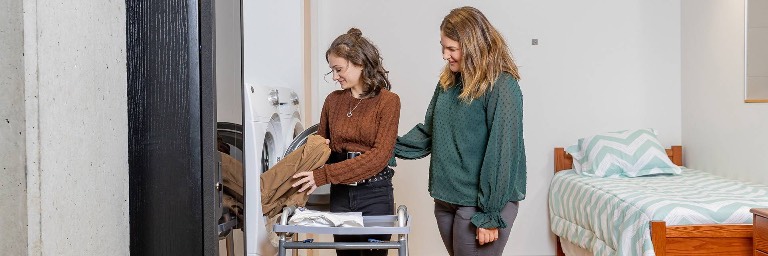Occupational Therapy Doctorate
As an occupational therapist, you'll make an impact in the lives of your clients.
Develop skills that help individuals adapt to changes in their physical and emotional performance.
- Program type:
- Doctoral Degree
- Format:
- On Campus or Off Campus
- Est. time to complete:
- 3 years
- Credit hours:
- 124
Why earn an occupational therapy doctorate?
UND's Occupational Therapy Doctorate
-
Gain real-world experience through practicums, fieldwork and teaching opportunities.
-
Develop a career plan with consultation from your assigned departmental faculty member.
-
Connect with those who share your passion through the Student Occupational Therapy Association.
-
Ranked by U.S. News & World Report as a Top 50 Occupational Therapy program in the nation.
-
UND's Pre-Occupational Therapy program is recommended for all incoming freshmen interested in OT. The three-year program provides the building blocks in your application to the O.T.D. program.
-
This program has been granted full accreditation status by the Accreditation Council for Occupational Therapy Education and meets the educational requirements for licensure in all U.S. States.
What can you do with an occupational therapy doctorate?
Accredited Occupational Therapy Doctorate
Occupational Therapy Doctorate Courses
Leaders in Health
Follow your passion and develop the skills to lead and shape the future of healthcare.
